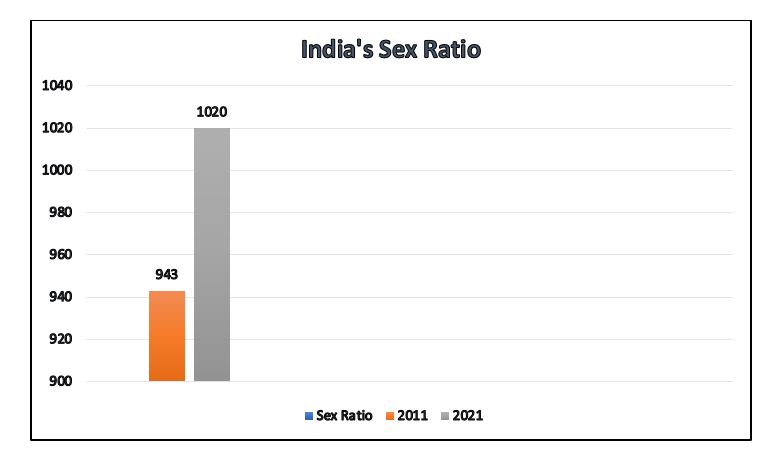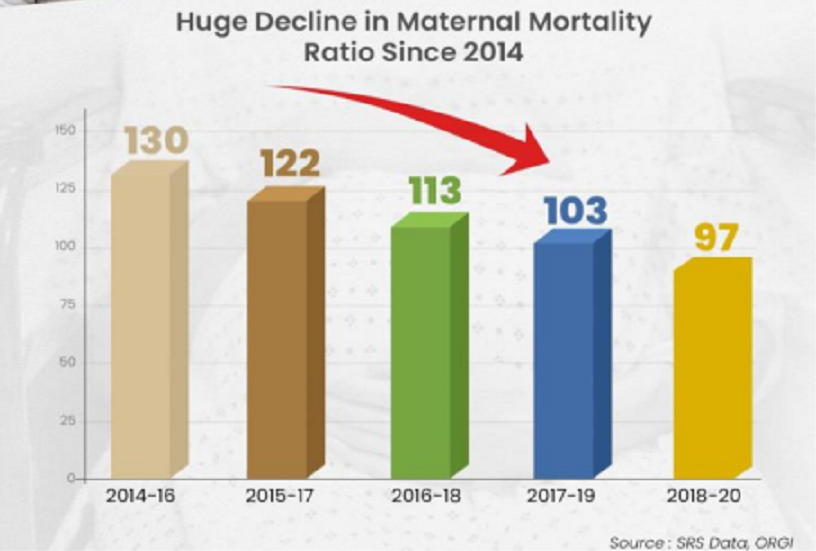“Nari Shakti for New India” is the new buzzword and India is advancing the idea of women-led development at a global level. Women of India are making major contributions in the arena of education, science, police, sports, NDRF, Defence forces and Research & Development to name a few, and accelerating the pace and scope of India’s development journey.
This social transformation that has come in the last decade has become possible due to the numerous welfare schemes that have been launched by the central government to enable women to overcome barriers and fulfill their aspirations. Adopting a lifecycle-based approach, the government has devised programs that provide women with their due social dignity and ensure ways of earning at the various stages of their life – from childhood to adulthood and old age.
These programs have been devised to bring women into the mainstream of all the sectors in the country to empower them. The details of these programs are:
Beti Bachao Beti Padao
This scheme was launched in 2015 to address the issue of declining sex ratio in India and ensure survival, protection and education of girl children. These efforts have led to a decrease in the female infant mortality rate in India, and a notable increase in the sex ratio at birth, which went up from 943 in 2011 to 1020 in 2021.

The government has made considerable efforts to emphasize and promote quality education for girls, as evidenced by the approval of 5646 Kasturba Gandhi Balika Vidyalayas, The results of these initiatives are evident, with the gross enrollment rate for girls in secondary schools rising from 75.51% in the 2014-15 academic year to 79.4% in 2021-22. Furthermore, there has been a noticeable increase of 4.5% in the enrollment of female students in STEM courses since 2016.
Sukanya Samriddhi Yojana
The government backed savings scheme for girls Sukanya Samriddhi Yojana was also launched to provide financial stability for education of girls which proved to be a great success story and across India. Over 3.4 crore accounts for girls have been established under the Sukanya Samriddhi Yojana scheme, collectively holding a total of Rs 80,000 crore.
Swachh Bharat Swachh Vidyalaya (SBSV)
This scheme was launched to ensure that all schools in India have access to the separate functional toilets for boys and girls. As an outcome of this scheme, over 4.17 separate toilets for girls have been constructed across schools in India.
Working Women Hostel
This initiative was introduced with the goal of providing working women with safe and conveniently situated housing, complete with day care facilities for their children. The scheme applies to urban, semi-urban, and even rural areas where there are lot of employment opportunities available for women.. The government is planning to establish 70,000 working hostels for women to provide much-desired assistance in accommodation.
Mission Poshan Abhiyan
Poshan (Prime Minister’s Overreaching Scheme for Holistic Nutrition) scheme was launched to tackle the problem of malnutrition and improve nutritional status of children (0-6 years), adolescent girls, pregnant women and lactating mothers in a time bound manner. By 2023, this program has benefited 10+ crore beneficiaries and there has been a consistent decrease in the number of children suffering from stunting, wasting, and underweight issues over time.

Moreover, the Maternal Mortality Rate has dropped to 97 in FY 2020-2021 that reflects the significant positive influence exerted by this scheme.

Pradhan Mantri Matru Vandana Yojana (PMMVY)
This scheme was launched in 2017 as a DBT (Direct Benefit Transfer) scheme under which cash benefits are provided to pregnant women in their bank account directly to meet enhanced nutritional needs and partially compensate for wage loss. More than 3 crore beneficiaries have been paid more than Rs. 13,280 crores as maternity benefit under this scheme.
Labour Room Quality Improvement Initiative (LaQshya)
This scheme was launched in 2017 to improve the quality of care in labour rooms and maternity operation theatres to ensure that pregnant women receive respectful and quality care during delivery and the immediate post-partum period.
Surakshit Matritva Aashwasan (SUMAN)
This scheme was launched in 2019 to provide free of cost quality healthcare to every woman and newborn visiting the public health facility to prevent maternal and newborn deaths in the country. The scheme has facilitated health check-ups for more than 3.94 crore expectant mothers.
In addition to this, Paid Maternity Leave has been increased from 12 weeks to 26 weeks for working women so that these women can maintain a health work life balance. This only ensures comfort and convenience for the expecting mother without a threat on her job security.
The government has shown commitment to provide paths for the sustainable growth of women-owned and women-led commercial companies. To make the Indian women self-sufficient and encourage women entrepreneurs, government extended financial support using Pradhan Mantri Mudra Yojana (PMMY) so that women can start their own business easily and become financially independent. Over 23 crore mudra loans which is 68% of the total loans have been given to women entrepreneur.
Nearly half of the registered startups, about 47%, have at least one woman serving on their board of directors. Additionally, a significant majority of Stand-Up India loans, exceeding 80%, have been granted to women-led businesses.
Over the past five years, skill development schemes that are specifically targeted at women from minority communities, like ‘Seekho aur Kamao’, ‘USTAAD’, and ‘Nai Manzil’, have reached an impressive total of 3.45 lakh women beneficiaries.. Also, for the working women, the EPFO contribution for new women employees has been reduced from 12% to 8% to promote women’s participation in the labour force as well as increase their take-home pay.
Even in the rural areas, flagship schemes such as Ujjwala Yojana were launched which focused on women’s health. Under this scheme, LPG cylinders were given free of cost to women so that they can work in smoke-free kitchens. The success of this program is evidenced by data revealing nearly 90 million kitchens are now free of smoke.. Additionally, there are 27.11 crore women beneficiaries under PM Jan Dhan Yojana which is a national mission on financial inclusion.
Another big challenge for rural women was to walk long distances to collect water for daily consumption, this has also been handled through Jal Jeevan Mission where private tap water connections are being installed in homes. Not just this, women are the biggest beneficiary under PM Aawas Gramin Yojana wherein pucca house with basic amenities are being provided to all houseless householder living in kutcha and dilapidated houses. Women beneficiaries account for 68% of 2 crore beneficiaries under PM Aawas Gramin Yojana.
Everywhere, women are stepping forward and playing a critical role and to encourage women to scale new heights, a landmark decision was taken by the government to allow permanent commission for women in the armed forces. These outreach schemes by government has been a pillar of support to women and encouraging them to break innumerable barriers in their journey to success. Notably, the ‘Sports for Women’ element of the Khelo India Scheme has seen a financial allocation of around Rs 9.5 crore.
Be it Group Captain Shalija Dhami which became the first woman air force officer to receive Command Appointment in the Combat Unit, Captain Shiva Chauhan who became the first woman officer to get posted at Siachen or two women behind ‘The Elephant Whisperers’, which became the first Indian production to win an Oscar, women are scaling new heights. Nari Shakti is emerging as a key enabler for India in this Amrit Kal and doing a massive contribution towards India reaching its goal of becoming a developed nation by 2047.
References
https://www.godigit.com/guides/government-schemes/women-empowerment-schemes-in-india
https://static.pib.gov.in/WriteReadData/specificdocs/documents/2023/apr/doc2023411179401.pdf
https://transformingindia.mygov.in/scheme/pradhan-mantri-awas-yojana-gramin/







